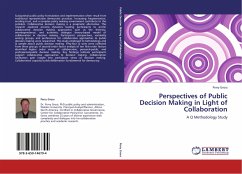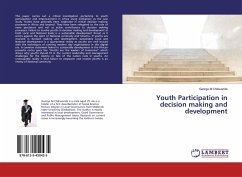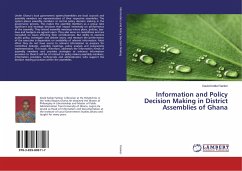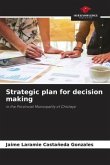Suboptimal public policy formulation and implementation often result from traditional representative democratic practices. Increasing fragmentation, eroding trust, and a complex policy making environment contribute to this problem. Collaborative decision making is a pragmatic alternative. This research explored process dynamics leading participants to prefer collaborative decision making approaches such as the diversity, interdependence, and authentic dialogue theory-based model of collaboration in decision making. Participants perspectives, variability among groups, and preferences for collaborative approaches to public decision making were researched. This study employed Q methodology and Q sample about public decision making. Fifty-four Q sorts were collected from three groups. A second-order factor analysis of ten first-order factors identified higher order views of collaborative, personal-public, and professional-public decision making. Key findings indicate participants support collaborative approaches to decision making. Collaboration facilitators gain insight into participant views of decision making. Collaboration capacity builds deliberation fundamental for democracy.
Bitte wählen Sie Ihr Anliegen aus.
Rechnungen
Retourenschein anfordern
Bestellstatus
Storno








